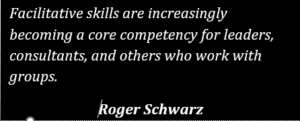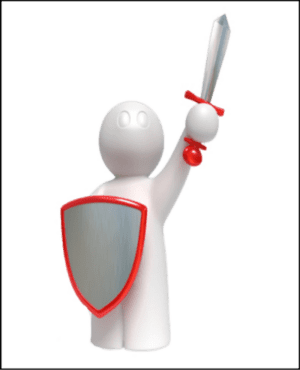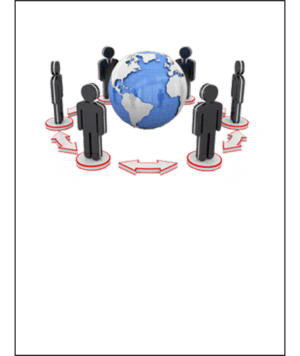Facilitation Skills
Facilitation is often referred to as the new cornerstone of management philosophy. With its focus on fairness and creating an easy decision making process. Creating a comfortable environment through better facilitation will give you a better understanding of what a good facilitator can do to improve any meeting or gathering.
What is Facilitation?
It is a manner of handling group meetings in a way that takes the focus away from just one leader, and instead distributes leadership to all members of the group. There is premium on democracy, group involvement, and cooperation. The focus is not just on getting things done, but also in feeling good about it.
It is often contrasted with presentation, which is delivering information or decisions to a group. Facilitation is group-centered while presentation is leader-centered. For this reason, facilitation is incompatible with an autocratic management style.
This course can help any organization make better decisions. It will give you an understanding of what facilitation is all about, as well as some tools that you can use to facilitate small meetings. A strong understating of how a facilitator can command a room and dictate the pace of a meeting will have you on the road to becoming a great facilitator.
Example of the difference between facilitation and presentation:
FACILITATION: “How do you think the company can solve this problem? Does anyone have any ideas?”
Course Objectives:
- Define facilitation and identify its purpose and benefits.
- Clarify the role and focus of a facilitator.
- Differentiate between process and content in the context of a group discussion.
- Provide tips in choosing and preparing for facilitation.
- Identify your role when managing groups in each of Tuckman and Jensen’s stages of group development: forming, storming, norming and performing.
- Identify ways you can help a group reach a consensus: from encouraging participation to choosing a solution.
- Provide guidelines in dealing with disruptions, dysfunctions and difficult people in groups.
- Define what interventions are, when they are appropriate and how to implement them.










Reviews
There are no reviews yet.